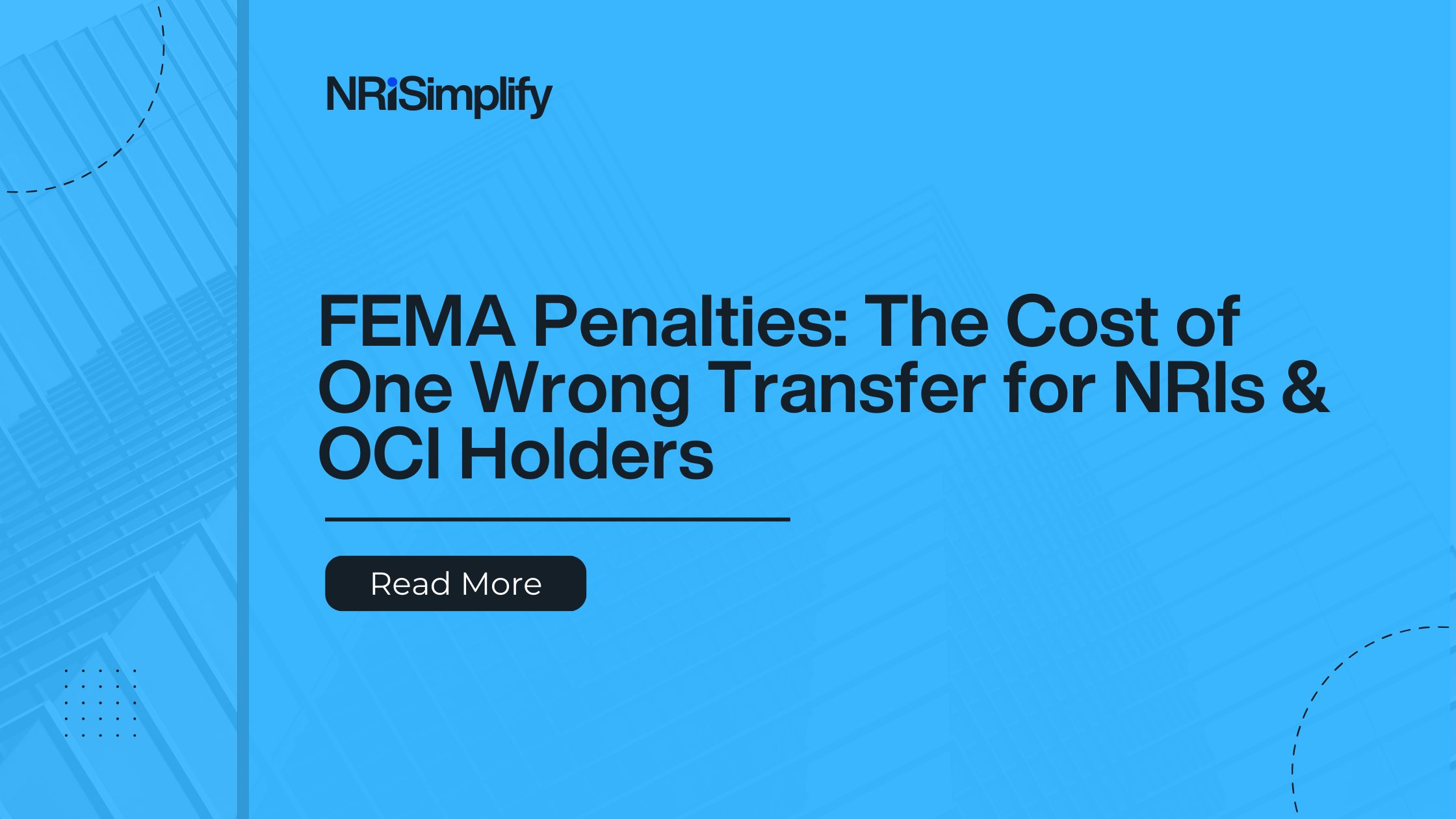Inheriting agricultural land in India as a Non-Resident Indian (NRI) involves navigating complex legal, regulatory, and tax-related landscapes. For NRIs inheriting agricultural land in India, understanding the legal framework and tax implications is essential to ensure compliance with Indian laws and to manage the inherited assets effectively. This guide will help NRIs understand the key tax obligations and the process of inheriting agricultural land in India.
Understanding Agricultural Land Ownership in India
Agricultural land in India is primarily regulated to preserve its intended use—farming and cultivation. NRIs can inherit agricultural land under Indian law, but certain restrictions apply:
- Foreign Exchange Management Act (FEMA): NRIs can inherit agricultural land but cannot purchase it outright.
- Usage Restrictions: Inherited agricultural land must be used for farming purposes. Converting it to non-agricultural use requires special permissions.
Tax Implications for NRIs
NRIs inheriting agricultural land in India should be aware of the following tax obligations:
Agricultural Income Tax
- Exemption Under Section 10(1): Agricultural income, such as rent or revenue from farming operations, is exempt from central income tax.
- Partial Integration with Other Income:
If non-agricultural income exceeds the basic exemption limit, agricultural income is partially integrated with non-agricultural income for tax calculation.
The tax liability is determined based on the combined income and applicable slab rates. - State-Level Agricultural Income Tax: Some states, including Tamil Nadu, Odisha, and West Bengal, levy agricultural income tax. Rules and rates vary depending on the crop and income threshold.
Capital Gains Tax
If an NRI sells inherited agricultural land, the following capital gains tax rules apply:
- Rural Agricultural Land: Not considered a capital asset and is exempt from capital gains tax.
- Urban Agricultural Land:
- Short-Term Capital Gains (STCG): If sold within 24 months, gains are taxed at the applicable income tax slab rate.
- Long-Term Capital Gains (LTCG): Gains from land held for over 24 months are taxed at 12.5% without indexation (for registrations post-July 2024).
Exemptions to Reduce LTCG Tax
- Section 54EC: Invest in government-approved bonds (e.g., REC or NHAI) within six months to reduce LTCG tax liability.
Selling Inherited Agricultural Land
NRIs must comply with FEMA and tax regulations when selling inherited agricultural land:
Eligible Buyers
- The land can only be sold to Indian citizens residing in India.
Repatriation of Sale Proceeds
- Proceeds must be deposited in an NRO account.
NRIs can repatriate up to USD 1 million per financial year, subject to tax clearance and RBI approval.
Documentation Required for Tax Compliance
When inheriting or selling agricultural land, NRIs need to prepare the following documents:
- Legal Heir Certificate: Establishes the rightful heir to the property.
- Succession Certificate: Required if no will exists or if disputes arise.
- Mutation of Property Records: Updates ownership in revenue records.
- No Objection Certificate (NOC): Mandatory for selling property and repatriating funds.
Key Considerations for NRIs
- Gifting Provisions: NRIs can inherit agricultural land but cannot gift it to other NRIs. Gifts can only be made to close relatives residing in India.
- Legal Restrictions: Selling or converting agricultural land to non-agricultural use requires specific permissions to avoid penalties or confiscation.
State-Specific Rules: Tax rates and land usage rules vary across states. It’s essential to consult local experts for compliance.
How NRI Simplify Can Help
Navigating the complexities of inheriting agricultural land in India can be daunting. NRI Simplify offers end-to-end support for NRIs, ensuring a smooth and compliant process. Our services include:
- Legal Assistance: Help with obtaining legal heir and succession certificates, property mutation, and compliance with FEMA regulations.
- Tax Advisory: Guidance on capital gains tax, agricultural income exemptions, and repatriation rules.
- Estate Planning: Creating or updating wills to streamline the inheritance process.
Conclusion
NRIs inheriting agricultural land in India must navigate both legal and tax requirements to ensure smooth property management and compliance. By staying informed about tax exemptions, FEMA regulations, and the legal implications of inheriting land, NRIs can manage their assets effectively and avoid potential legal complications.
At NRI Simplify, we specialize in simplifying inheritance matters for NRIs. Whether it’s tax compliance, property management, or legal documentation, our team ensures a hassle-free experience. Contact us today to secure your rights and maximize the value of your inherited assets!
Frequently Asked Questions (FAQs)
Q1. Can NRIs inherit agricultural land in India?
Yes, NRIs can inherit agricultural land in India, but they cannot purchase it under FEMA guidelines. They must ensure compliance with Indian inheritance laws.
Q2. Are capital gains from inherited agricultural land taxable?
- Rural agricultural land: Exempt from capital gains tax.
- Urban agricultural land: Subject to STCG or LTCG, depending on the holding period.
Q3. How can NRIs repatriate sale proceeds from agricultural land?
NRIs can repatriate up to USD 1 million per financial year from the sale of agricultural land after depositing the proceeds into an NRO account.
Q4. Do NRIs have to pay inheritance tax on agricultural land in India?
No, there is no inheritance tax in India. However, NRIs may need to pay capital gains tax when selling the inherited agricultural land.
Q5. Can NRIs gift agricultural land to other NRIs?
No, NRIs can inherit agricultural land but cannot gift it to other NRIs. Gifts can only be made to close relatives residing in India.






